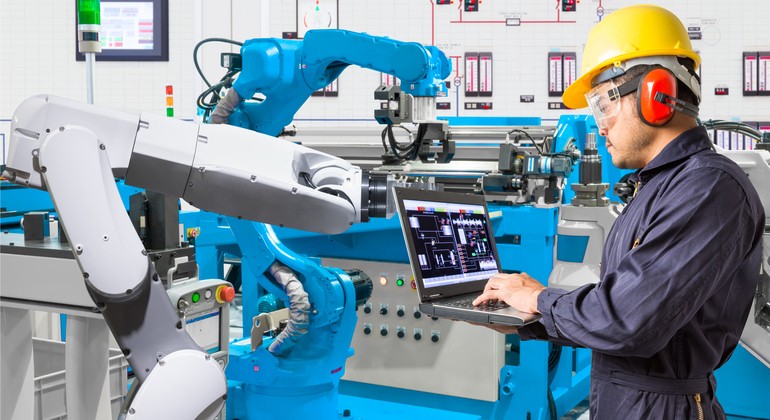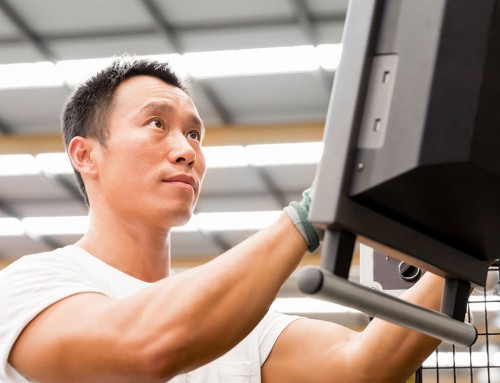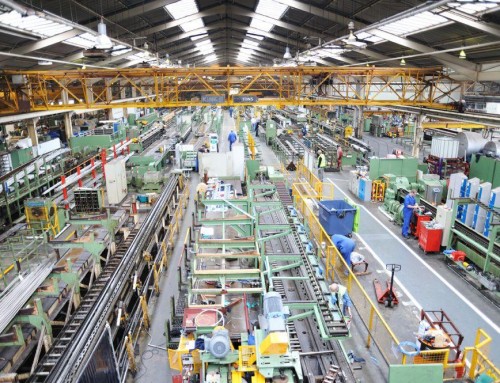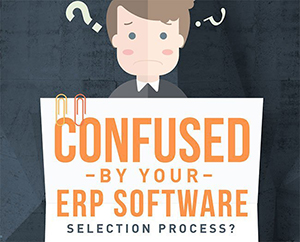4 Technology Trends Facing Australian Manufacturers In 2018
Australia has a highly competitive manufacturing sector, and manufacturers face a range of challenges – not the least of which is competition from China and India. According to the 2016 Global Manufacturing Competitiveness Index by Deloitte Global and the US Council on Competitiveness, Australia’s manufacturing competitiveness ranking slipped from 16th in 2013 to 21st in 2016!
Faced with stiff international competition, Australian manufacturers must work more efficiently, productively and economically than ever before. However, in order to do so, having the right technology is essential.
In a recent paper, PWC suggests that while manufacturing in Australia “may be facing some headwinds”, it’s also “undeniably in the midst of a technological renaissance that is transforming the look, systems and processes of the modern factory.”
Here are four of the technology innovations that we see as having the most impact on Australia’s manufacturing sector in 2018.
1. The Internet of Things/Industrial Internet of Things
The Internet of Things (IoT) has already undeniably revolutionised the manufacturing sector on a global scale, enabling manufacturers to access, gather and use real-time data on their assets – anywhere, and at any time.
According to Intel, 40 percent of the world’s IoT devices are now used in business and manufacturing.
Most importantly, with a reliable IoT system in place, manufacturers can automate much of their manual processes, and can also very quickly identify and rectify issues before they escalate – cutting costs and driving a far better and more effective customer experience.
When integrated with a business management solution such as SAP Business One, the data gained from IoT devices can also go far deeper – enabling much more accurate and informed decision-making right across the organisation.
Plus, through eliminating error and refining production, a connected IoT solution can even help improve the actual manufacturing process – resulting in higher quality products.
PWC states, “for industrial manufacturing companies, the next generation of IoT technology should go well beyond real-time monitoring to connected information platforms that leverage data and advanced analytics to deliver higher-quality, more durable, and more reliable products.”
2. Integrated ERP Systems
To compete on a global scale, manufacturers need to operate in smarter, faster and more connected ways. This is where robust enterprise resource planning (ERP) and supply chain management solutions are essential. According to Business Insider, 70 per cent of retail and manufacturing companies around the world have now started a digital transformation project for their supply chain and logistics.
With a solution such as SAP Business One, for instance, manufacturers can bring together all of the disparate information from across their business, and manage it all via the one, central location. As well as significantly streamlining the overall monitoring and management process, SAP Business One can save enormous amounts of time by removing reliance on manual comparisons and reports.
3. Robotics and Drones
Monitoring asset-intensive manufacturing facilities – particularly for businesses that have multiple factories or work-sites – can be extremely time-consuming and challenging. Traditionally, maintenance and monitoring is performed by factory staff or remote technicians – who have to manually input and compare data to ensure optimal performance.
With the advent of robotics and drones, however, much of this manual monitoring can be automated and streamlined– saving enormous amounts of time, effort and money. Drones can be used to check inventory, patrol storage yards or monitor factory productions. Robots can – to a degree – be used to automate time-consuming or laborious tasks.
The IMCRC is a Cooperative Research Centre that helps Australian companies increase their global relevance through research-led innovation in manufacturing products, processes and services. According to the IMCRC, current industrial automation lacks flexibility, as it is “designed for high-volume, low-variation processes and is economically unviable for many SMEs”.
However, with the right level of investment and attention, it’s likely that assistive robots will soon work collaboratively with humans and with each other, to improve sensing, awareness and decision-making capabilities.
PWC believes robotics is steadily gaining traction: “In many cases, are employed to complement rather than replace workers. This concept, known as “cobotics,” teams operators and machines in order to make complex parts of the assembly process faster, easier, and safer.”
4. 3D Printing
Another major innovation in manufacturing is in 3D printing – which is set to enable far more rapid and customised production. Henry Zhou, writing for Omron Electronics notes that 3D printing is “now being used widely in small volume and customised manufacturing,” and will “challenge and disrupt the traditional mass production model.
According to PWC, the current scope for 3D printing is limited, but manufacturers need to act now in order to get on board.
“As an initial step, industrial manufacturing companies should apply 3D printing technology to the product development and prototyping process, where its speed and flexibility can spur innovation and reduce time-to-market,” the paper says. “The next step could be to use 3D printing to make highly specialized, low-volume parts that are components or subassemblies of finished products, or to create tools for the molding, casting, or forming of products.”
Want to learn more? Chat to Leverage Technologies
Leverage Technologies is a leading technology firm with extensive experience in the manufacturing sector. As a trusted SAP Partner, Leverage Technologies has extensive experience in deploying SAP Business One for a range of businesses, and across several industries.
To find out more about SAP Business One, book a free demo today, or give us a call on 1300 045 046.













Leave A Comment